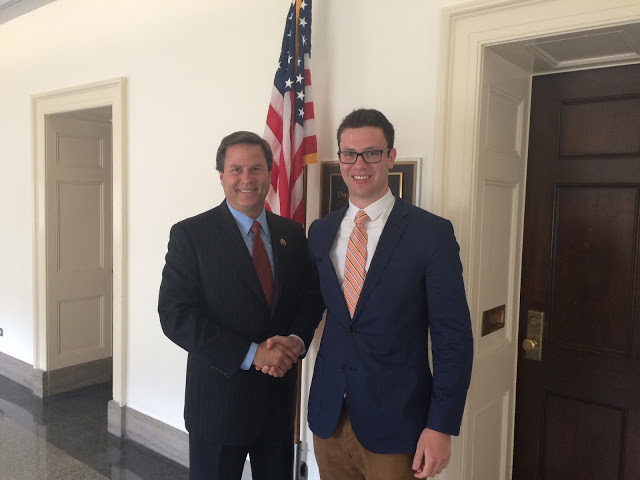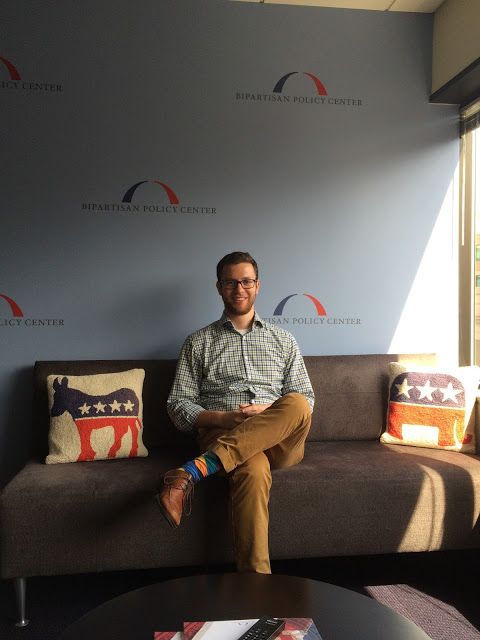- Public Policy
- Leadership
- Funding
- News & Events
- About the Center
Back to Top Nav
Back to Top Nav
Back to Top Nav
Back to Top Nav
As a First-Year Fellow, I worked at the Bipartisan Policy Center (BPC)'s Financial Regulatory Reform Initiative (FRRI). The initiative seeks to provide recommendations that are not based on any ideological or partisan shortcuts. As my mentor explained, the FRRI aims to gather research and testimony from all interested parties and publish recommendations that are based on a reasonable and thoughtful set of facts (albeit in a world where objective facts do not exist). When the debate over financial regulatory reform proceeds from these basic set of facts, then the FRRI’s goal is achieved. The optimal outcome for the BPC’s recommendations is for Democrats and Republicans to both find value and insight in the BPC’s reports (even if they are not satisfied with the whole thing) and build their policy around a more objective framework.
 |
| Andrew Wolff '18 meets with Congressman Donald Norcross to discuss Federal Reserve reform proposals. |
As an intern, I expected most of my assignments to be easy and the answers to be defined or simple. Instead, my first assignment was completely open-ended and my finished product was original research. This opportunity provided invaluable experience and an incredible feeling of accomplishment.
 |
| Andrew Wolff '18 sitting in the BPC's Green Room where officials and the center's directors regularly meet to discuss policy. |
This internship increased my interest in pursuing a quantitative major and eventually pursuing an Master in Public Policy. Although I do not have interest in being an elected official, I want to work in government in some capacity for a period of time. I built some beneficial relationships during my summer and learned a lot about working in and around government in Washington.
Financial regulation is rather complex and I enjoyed getting into the weeds of the policy area. I have a much greater appreciation for understanding policy as complex without being defined and decided by a specific ideology or theory. I will take this newfound appreciation for the gray-areas into my academic life at Dartmouth and hope to better understand the nuances of various subjects.